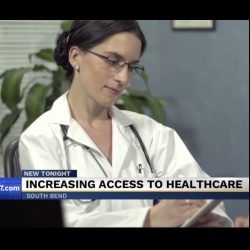55
"COVAX and World Bank to Accelerate Vaccine Access for Developing Countries," trumpets a World Bank press release. "How AI Is Making Healthcare More Affordable And Accessible," announces Forbes magazine. "How technology is helping improve financial inclusion around the world," reports CNBC. It's a linguistic frame that appears regularly in media, PR, and policymaking. Those who can't afford the top-tier forms of basic necessities like housing or physical and mental healthcare, we're told, can have "access" to less expensive, lower-quality versions. Enter bottom-rung ACA marketplace plans, less effective COVID vaccines, homeless people living in train containers, scammy cryptocurrency apps, and clunky chatbot "therapists." After all, they're better than the alternative: having no healthcare, housing, or income at all. But why must having nothing at all be the only alternative? Why isn't it possible to ensure high-quality essentials for everyone? And how does media's repackaging of substandard necessities as "increasing access" and fostering "inclusion" serve to make the barbarism of austerity politics seem palatable, even benevolent? On this episode, our season seven premiere, we'll examine the trope of framing subpar material essentials as forms of "inclusion" for the poor or "increasing access" to important life saving and sustaining needs, exploring how media simply accept, rather than challenge, the manufactured austerity that allows this cruel stratification in the first place. Our guest is writer, artist and pod host Beatrice Adler-Bolton.
Season 7 premiere of the official pod of hexbear.net


Those favs are also some of my favs. Definitely the ones I also recommend though I've never seen them written out like this.